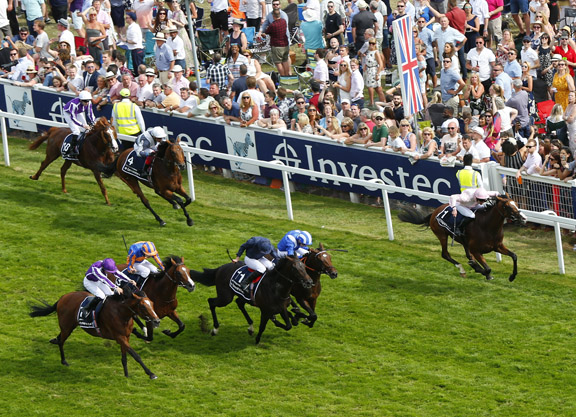A Guineas meeting in early June and the Derby and Oaks run in early July feature in the British Horseracing Authority's “best-case scenario” planning for a resumption of racing. With racing currently suspended indefinitely due to the coronavirus pandemic, the season's first four Classics have been delayed from their usual slots in the calendar. However, the sport's Resumption of Racing Group is working to draw up provisional plans for when racing is able to return, with “a phased approach” to racing behind closed doors anticipated in the immediate stages.
In a communication sent to trainers on Friday evening, the BHA said “it is unlikely that the entire black-type programme will be staged this year,” although it “will ensure that the key generation-defining races will be run, as well as safeguarding the Group 1 programme as much as possible.”
With Royal Ascot currently still due to take place in its traditional mid-June slot, the meeting could be sandwiched by the Classic cards, although all plans very much depend on racing being given the go-ahead to resume.
The BHA said, “Our planning would allow for the Guineas to be run in early June, and the Derby and Oaks in early July, with Royal Ascot still scheduled to take place in its existing slot commencing on June 16.
“In this scenario, we would also be looking to stage several key Classic trials, and other trial races feeding into Royal Ascot, during the second half of May. We emphasise that a later restart would require these plans to be adjusted accordingly.”
The BHA concedes some of the principal Group 1 races for older horses need to move to a slightly different date, especially in order to accommodate the early Classics, and some may not be open to 3-year-olds this year.
It adds: “This outline structure [and its likely condensed nature] will need to be based on what is collectively best for the Thoroughbred and the industry as a whole. And as with the wider race programme, it is contingent on external factors and will need to be adapted based on what's feasible in terms of when racing can commence and in what form.”
With no income from crowds and betting shops possibly remaining closed, there will be a greater reliance on the Levy Board for funding, so fixtures are likely to be limited and prize money impacted. The constraint on meetings means it is likely “not all racecourses will be able to race behind closed doors or meet specific criteria around risk mitigation.”
Field sizes will need to be restricted to support the logistics of social distancing on a raceday and to minimise the risk of incident. However, the BHA is aiming for “a standard mix of handicaps and weight-for-age races for all horses,” but it believes “field sizes will need to be restricted to support the logistics of social distancing on a raceday and to minimise the risk of incident”.
Such measures will limit early opportunities to race, but more divisions of races could be run, while handicaps could have non-standard rating bands and be open to horses who have had just two starts. Some maiden races may be staged for unrated horses who have been eliminated from standard novice and maiden events.
Jumps racing is currently scheduled to recommence on July 1 and the BHA is planning to base those fixtures on the original programme book, although “trainers are currently being asked for details of the horses they expect to have ready to run at that time so that appropriate revisions to the programme can be made.”
Not a subscriber? Click here to sign up for the daily PDF or alerts.






